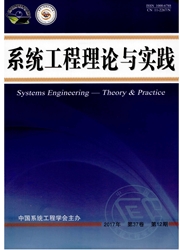

 中文摘要:
中文摘要:
随着市场需求的快速变化, 越来越多的热销产品在短期内会受到库存和产量的限制, 导致这些热销品出现投机买卖的机会. 另外, 策略型消费者的延迟购买行为会对零售商的定价决策和收益产生重大影响. 本文研究一个拥有固定库存数量的垄断零售商在投机商出现时, 怎么做产品定价决策. 通过运用经典的Stackelberg博弈模型, 分析了投机商和策略消费者的行为, 并得出了在两者的共同作用下, 零售商的定价策略. 并分析了策略型消费者所占比例、消费者保留价格变动系数、消费者周期2买到产品的概率等一系列因素对产品价格和零售商定价和收益产生的影响,结论表明, 在特定情况下, 投机商的存在对零售商是有益的.
 英文摘要:
英文摘要:
With the rapid changes in demand, lots of hot-selling products are subject to inventory and production constraints in the short term, resulting in the emergence of speculators. In addition, strategic consumer's delay-buying behavior will do a significant impact on the retailer's pricing decisions and revenue. In this paper, we consider a model that the monopoly retailer with fixed inventory makes pricing decisions when facing speculators. We use the Stackelberg model to analyze the speculators and strategic consumers' behavior, then we discuss the optimal price and retailer's revenue with strategic consumers proportions, consumer's reservation price variation coefficient, purchasing probability in period 2, and get the results of retailer pricing decisions. The conclusions show that the existence of speculators is benefit for retailers under specific situations.
 同期刊论文项目
同期刊论文项目
 同项目期刊论文
同项目期刊论文
 期刊信息
期刊信息
